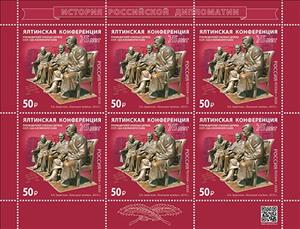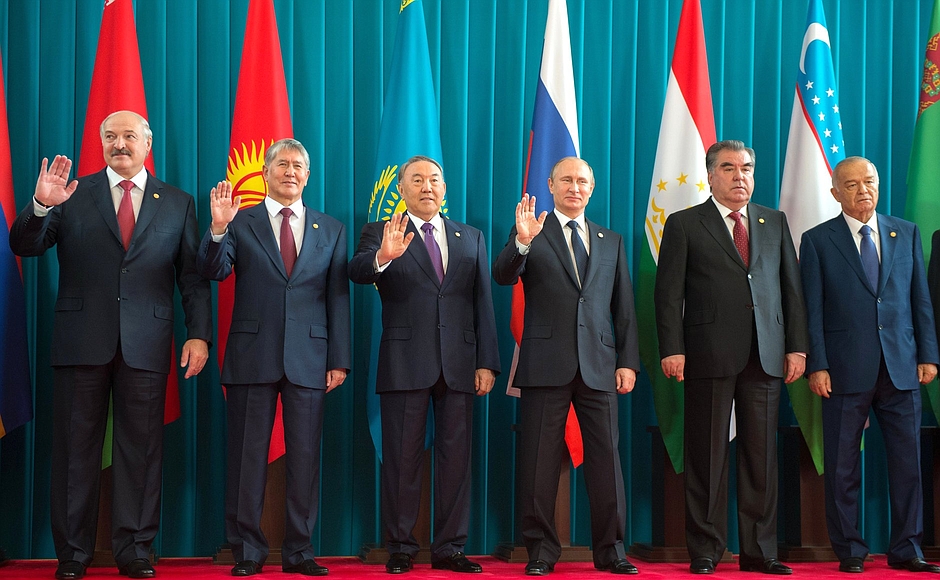Mini Sheet: 75 years of the Yalta Conference (Russia 2020)
75 years of the Yalta Conference (Russia 2020)
10 February (Russia ) within release History of Russian diplomacy goes into circulation Mini Sheet 75 years of the Yalta Conference face value 300 Russian ruble
| Mini Sheet 75 years of the Yalta Conference in catalogues | |
|---|---|
| Michel: | Mi: RU 2823KB |
Mini Sheet is horizontal format.
The Yalta (Crimean) Conference of the Allied Powers (February 4–11, 1945) is the second (after Tehran) meeting of the leaders of the three Allied Powers — the USSR, the USA, and Great Britain, dedicated to the establishment of a post-war world order. The conference was attended by Chairman of the Council of People's Commissars of the USSR I.V. Stalin, US President F.D. Roosevelt and British Prime Minister W. Churchill, as well as members of delegations. The conference was held in the Livadia Palace in the village of Livadia, 3 km from Yalta. During the conference, plans were agreed on the defeat of Germany and the requirements for its unconditional surrender, decisions were made on denazification, demilitarization and the trial of war criminals. The postage stamp depicts the monument of Zurab Tsereteli "Big Three" (2015), installed in 2015 in Livadia.Mini Sheet 75 years of the Yalta Conference it reflects the thematic directions:
Famous People refers to the fame and public attention accorded by the mass media to individuals or groups or, occasionally, animals, but is usually applied to the persons or groups of people (celebrity couples, families, etc.) themselves who receive such a status of fame and attention. Celebrity status is often associated with wealth (commonly referred to as fame and fortune), while fame often provides opportunities to make money.
A head of state (or chief of state) is the public persona that officially represents the national unity and legitimacy of a sovereign state. In some countries, the head of state is a ceremonial figurehead with limited or no executive power, while in others, the head of state is also the head of government. In countries with parliamentary governments, the head of state is typically a ceremonial figurehead that does not actually guide day-to-day government activities and may not be empowered to exercise any kind of secular political authority (e.g., Queen Elizabeth II as Head of the Commonwealth). In countries where the head of state is also the head of government, the president serves as both a public figurehead and the actual highest ranking political leader who oversees the executive branch (e.g., the President of the United States).


